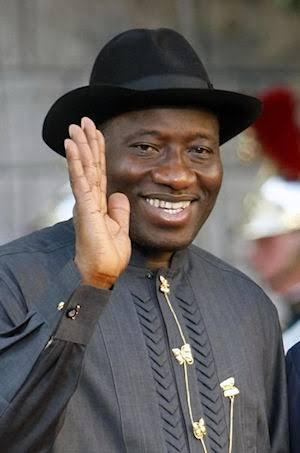Dr. Goodluck Ebele Jonathan: Biography, Net Worth, And Career Highlights
Dr. Goodluck Ebele Jonathan stands as one of Nigeria’s most influential political figures, a man whose journey from a humble beginning to the pinnacle of power in Africa’s largest economy is a compelling story of resilience, determination, and service. This detailed blog post explores his early life, educational background, political career, net worth, and the legacy he has carved in Nigerian history.
Early Life and Background
Goodluck Ebele Jonathan was born on November 20, 1957, in Ogbia, a local government area in Bayelsa State, located in Nigeria’s Niger Delta region. Born into a modest family, Jonathan’s early life was shaped by the environment of the Niger Delta—a region rich in natural resources but plagued with economic and social challenges.
From a young age, Jonathan exhibited a passion for learning and leadership. His parents, recognizing his potential, supported his education despite limited resources. Growing up in a community where educational opportunities were scarce, Jonathan’s determination to succeed laid the foundation for his future career.
Academic Pursuits
Education played a central role in Jonathan’s life. He attended various primary and secondary schools in Bayelsa State before gaining admission to the University of Port Harcourt. At the university, he pursued a Bachelor of Science degree in Zoology, which he completed in 1982.
His thirst for knowledge didn’t stop there. Jonathan went on to obtain a Master’s degree in Hydrobiology and Fisheries Biology in 1986, deepening his expertise in biological sciences. Later, in 2006, he earned a Doctorate degree in Zoology, a testament to his commitment to education and intellectual growth.
This academic foundation, particularly in environmental biology, connected closely with the concerns of the Niger Delta region, known for its oil production and environmental challenges.
Entry into Politics
Jonathan’s entry into politics was gradual but marked by strategic moves that positioned him as a key player in Bayelsa State politics. His political journey officially began in 1998 when he joined the People’s Democratic Party (PDP), one of Nigeria’s dominant political parties.
In 1999, following Nigeria’s return to democratic rule, Goodluck Jonathan was appointed Deputy Governor of Bayelsa State. This role gave him a platform to influence state policies and gain valuable administrative experience.
In 2005, circumstances thrust Jonathan into the governorship after the impeachment of then-Governor Diepreye Alamieyeseigha on corruption charges. Jonathan served as the Governor of Bayelsa State from 2005 to 2007. During his governorship, he focused on improving infrastructure, education, and healthcare, striving to uplift a state often marginalized in national politics.
Rise to National Prominence
Jonathan’s rise from governor to national figure was swift and significant. In 2007, he was selected as the vice-presidential candidate alongside Umaru Musa Yar’Adua, the PDP presidential candidate. Their victory in the 2007 general elections marked Jonathan’s entry onto Nigeria’s national stage as Vice President.
The political landscape shifted dramatically in 2010 when President Yar’Adua fell critically ill. Jonathan was appointed Acting President in February 2010 after the National Assembly passed a resolution enabling him to assume presidential powers in the absence of Yar’Adua.
Following Yar’Adua’s death in May 2010, Goodluck Jonathan was sworn in as the substantive President of Nigeria, becoming the country’s 14th president. This was a historic moment, as Jonathan became the first person from the Niger Delta region to hold the presidency.
Presidency (2010-2015): Achievements and Challenges
Jonathan’s presidency was marked by a blend of successes, challenges, and controversies. Here are some key highlights from his time in office:
Electoral Reform and Democracy Strengthening
One of Jonathan’s notable achievements was overseeing the 2011 general elections, widely regarded as one of Nigeria’s fairest and most credible elections at the time. The elections saw improvements in voter registration, ballot transparency, and reduced electoral violence compared to previous polls.
This milestone boosted Nigeria’s democratic credentials and was seen as a step forward for electoral reforms and governance.
Economic Milestones
During Jonathan’s administration, Nigeria achieved a landmark economic milestone by becoming Africa’s largest economy in 2014, surpassing South Africa. This was driven by revisions in Nigeria’s GDP calculations and economic diversification efforts.
Jonathan’s government focused on boosting sectors such as agriculture, manufacturing, and infrastructure development. Projects like the Trans-Saharan highway and various energy initiatives were launched to improve connectivity and power supply.
Security Challenges and Boko Haram Insurgency
Jonathan’s presidency was also overshadowed by significant security challenges, particularly the rise of the Boko Haram insurgency in the Northeast region. The extremist group launched deadly attacks on civilians, government institutions, and security forces, leading to a humanitarian crisis.
Critics argue that Jonathan’s administration was slow to respond effectively to the insurgency, leading to increased insecurity and displacement of thousands of Nigerians.
Social Programs and Poverty Alleviation
Jonathan’s administration launched several social intervention programs aimed at poverty alleviation and improving education and health services. Programs like the Conditional Cash Transfer (CCT) provided direct financial support to vulnerable families, while investments in education sought to improve school attendance and literacy rates.
Peaceful Transfer of Power
In 2015, Jonathan ran for re-election but lost to Muhammadu Buhari. In a historic move, he conceded defeat peacefully and accepted the election results, a rarity in Nigerian politics. His concession was widely praised domestically and internationally, reinforcing democratic norms and setting a positive precedent for future elections.
Net Worth and Personal Wealth
Estimating the exact net worth of political figures can be challenging, especially in countries where transparency is limited. However, various credible reports estimate Goodluck Jonathan’s net worth to be in the range of $30 million to $50 million.
Jonathan’s wealth is believed to stem from his long career in public service, various investments, and royalties. Notably, compared to many Nigerian politicians, he is considered to live a relatively modest lifestyle and has maintained a reputation for integrity and humility.
Life After Presidency
Since leaving office, Goodluck Jonathan has remained engaged in public life, focusing on peacebuilding, diplomacy, and democratic advocacy.
He has taken on roles such as the United Nations Sustainable Development Goals (SDGs) Advocate, using his platform to champion issues like education, environmental sustainability, and poverty reduction.
Jonathan has also participated in election observation missions across Africa and beyond, lending his experience to support free and fair elections in emerging democracies.
Legacy and Impact
Dr. Goodluck Ebele Jonathan’s legacy is multifaceted. He is remembered for bringing the presidency to the Niger Delta, a region historically marginalized in Nigerian politics. His academic background and humble demeanor endeared him to many Nigerians who viewed him as a leader with integrity.
His peaceful concession in 2015 remains a landmark moment in Nigeria’s democratic evolution, proving that power transitions can be peaceful and constitutional.
However, his presidency was not without criticisms—particularly around security management and corruption allegations. Despite this, Jonathan’s impact on Nigeria’s political landscape and democratic development remains significant.
Conclusion
Dr. Goodluck Ebele Jonathan’s life story is one of determination, education, and public service. From the humble surroundings of Bayelsa State to the highest office in Nigeria, his journey reflects both the possibilities and challenges of Nigerian politics.
His administration’s achievements in electoral reforms, economic growth, and social programs are milestones that continue to influence Nigeria’s development path. Meanwhile, his peaceful acceptance of electoral defeat set a democratic standard that many hope will be upheld by future leaders.
As he continues to contribute to peace and development on the global stage, Goodluck Jonathan’s story remains a powerful example of leadership shaped by resilience and dedication.



